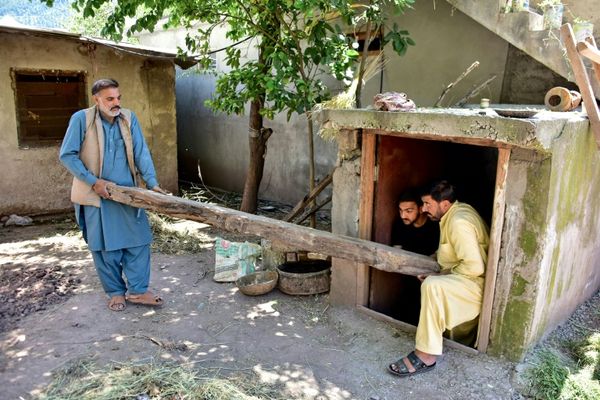
Activists have gathered outside the Scottish Parliament building demanding MSPs protect the “core principals” of Scotland’s new gender law ahead of a debate on proposed reforms.
The Gender Recognition Reform (Scotland) Bill is expected to pass this week following a debate on Tuesday, which could take as long as nine hours, and a vote on Wednesday.
The controversial Bill would make it easier for trans people to obtain a gender recognition certificate (GRC) by removing the requirement for a diagnosis of gender dysphoria.
It will also lower the minimum age for applicants from 18 to 16 and drop the time required for an applicant to live in their acquired gender from two years to three months – six for people aged 16 and 17 – though with a subsequent, three-month reflection period.
The marathon debate on Tuesday will look at more than 150 proposed amendments to the new law.
Trans-rights activists united outside Holyrood on Tuesday urging MSPs to “protect the Bill” through the amendment phase.
Beth Douglas, 29, who runs an LGBT+ group, spoke at the demonstration.
“What this Bill does is it will allow trans people to do two things,” she told the PA News Agency.
“One, it allows us to update our birth certificate.
“There might be two reasons why you want to do that, and that might be because you want your marriage certificate to be in the right gender so when you have your special day, you are not misgendered, which I think is a very low ask.
“And the other, which is personal to me, and why I want a GRC, is there will be a day for everyone when we are issued a death certificate. When that happens for me, I want that death certificate to be in the right gender.
“I would like to rest in peace and die in dignity.”
She added: “I really hope Parliament votes to protect the overall principles of the Bill.
“There are over 140 amendments, all trying to do different things.
“I want to see all MSPs abide to their principles and protect this Bill in the amendment stage and eventually pass it tomorrow.”
Critics of the Bill say making it easier to obtain a GRC could put women and girls in danger when it comes to single sex spaces.
But the Scottish Government has insisted repeatedly that the legislation will not impact on the Equality Act, which allows for trans people to be excluded from single-sex spaces such as changing rooms and shelters, something that was affirmed by an earlier amendment from Labour’s Pam Duncan-Glancy.
One activist speaking at the demonstration, who wished to remain anonymous, challenged critics’ comments on women and girls’ safety in same-sex spaces, saying: “Trans people using spaces that align with their identity has been the legal case since the Equalities Act.
“It’s been the legal case for well over 20 years at this point.
“It’s not been a problem for the last 20 years, and I don’t see why this Bill, which has nothing to do with that, would impact that.
“This question enforces gender stereotypes.
“If you don’t pass society’s standards for what a woman looks like, you will be excluded and you will face that bigotry.
“All the evidence you need is one of the American Republican states did enforce a bathroom ban on trans people and then they had to repeal it a year later because of the problems it caused for cis-gender women getting kicked out the toilets.
“It was a disaster. Unworkable and unenforceable.
“I am hoping this Bill will pass and it will be out of the news and the media cycle. We just want to live our lives.
“I personally don’t want to have to be out protesting just to change my birth certificate.”
The activist added: “This Bill is for birth certificates, marriage certificates, death certificates, HMRC, tax details.
“It’s about privacy and dignity.”
Another activist attending, who did not want to give their name, said: “For those of us who seek trans health care in the UK, it’s really difficult.
“It takes so much time, it’s a depressing and devaluing situation because you have to prove that you are trans enough to get the care that you deserve.
“You’re left on waiting lists for years and years at a time.
“While the Bill doesn’t address that in particular, I think anything that can support us will help improve that for us.
“They are rights that any cis-person has, so why can’t we have them?”







